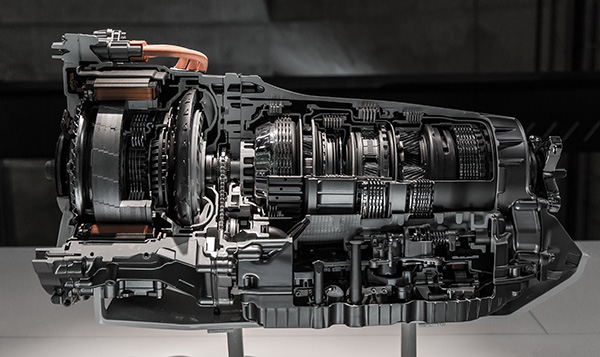
Your vehicle’s transmission plays a crucial role in getting power from the engine to the wheels. Whether you're driving an automatic or manual, the transmission ensures smooth shifting and consistent acceleration. But like any mechanical system, it’s vulnerable to wear and tear over time. When transmission problems begin, they often show up as subtle symptoms that can easily be mistaken for something else.
Catching early signs of transmission trouble can prevent more serious and expensive repairs down the line. Here's how to recognize common issues and understand when to schedule a professional inspection.
What a Transmission Does and Why It Matters
The transmission is responsible for adjusting your engine’s power output based on your driving speed. In simple terms, it helps your vehicle shift gears so that the engine can run efficiently at different speeds. Without a properly functioning transmission, your car may have difficulty accelerating, slip out of gear, or fail to move at all.
Transmissions are composed of numerous moving parts, including clutches, gear sets, fluid channels, and electronic components. Keeping all of these components in good condition is essential to your vehicle's performance.
Slipping Gears or Hesitation While Driving
One of the most noticeable signs of a failing transmission is gear slipping. You might press the accelerator and feel the engine rev up, but the car doesn’t move as expected. This delay or hesitation in acceleration could mean that the transmission isn't properly engaging the gears.
In automatic vehicles, slipping can feel like a sudden drop in power or a jolt as the transmission attempts to shift but fails. In manuals, you might notice the car falling out of gear unexpectedly or difficulty keeping the clutch engaged.
These symptoms indicate internal wear or a fluid issue and should never be ignored, as continued driving may lead to complete transmission failure.
Shifting Feels Rough or Delayed
Smooth, seamless gear changes are a sign of a healthy transmission. If you notice that shifting feels clunky, jerky, or unusually loud, there may be an issue.
Hard shifts can stem from low or dirty transmission fluid, sensor malfunctions, or wear within the clutch packs or valve body. These issues can worsen quickly if left unaddressed. Automatic transmissions might delay shifts or struggle to downshift when slowing down, while manual vehicles might have trouble finding the right gear or may grind during shifting.
Transmission Fluid Leaks
Your transmission relies on clean, pressurized fluid to lubricate its moving parts and maintain optimal temperatures. A fluid leak is a major red flag. Transmission fluid is typically red or pinkish in color, although it can darken over time.
If you see a reddish puddle under your car, especially near the middle or rear of the engine bay, it's a good indication of a leak. Unlike engine oil, transmission fluid doesn't burn off over time, so any drop in fluid level is likely due to a leak and should be addressed immediately.
Low fluid levels can cause overheating, gear slippage, and internal damage that could otherwise be prevented.
Strange Noises or Burning Smell
Unusual sounds such as whining, humming, or grinding can come from the transmission when parts begin to wear. You may hear these noises during acceleration, while idling in gear, or when shifting.
Another warning sign is a burning odor, often caused by overheated transmission fluid. When fluid becomes contaminated or breaks down, it loses its ability to cool and protect the internal components. A burnt smell should be taken seriously—it means your transmission is under stress and needs immediate attention.
Warning Lights on the Dashboard
Modern vehicles have sensors that monitor transmission temperature, fluid pressure, and shift performance. If a problem is detected, the transmission warning light or the check engine light may come on.
While a warning light alone isn’t enough to diagnose the issue, it’s a strong signal that something isn’t right. Ignoring these alerts can allow small issues to escalate into more expensive problems. A diagnostic scan can help pinpoint the source of the alert and guide the next steps for repair.
Why Early Diagnosis Matters
Many drivers wait until symptoms worsen before seeking help. Unfortunately, the longer transmission problems go unaddressed, the more damage they can cause. Catching an issue early often means a simple fluid change or sensor repair. Waiting too long might require a full transmission rebuild or replacement.
Transmissions are complex and expensive systems, so routine maintenance and prompt repairs are key to keeping your vehicle reliable and roadworthy.
Visit Loyola Marina Auto Care in Westchester, CA, for Transmission Repair
At Loyola Marina Auto Care in Westchester, CA, we specialize in diagnosing and repairing transmission issues. Whether you're experiencing rough shifting, leaking fluid, or dashboard warnings, our expert technicians utilize advanced diagnostics to pinpoint the root cause of the issue.
Schedule your inspection today and keep your transmission and your entire vehicle running smoothly for the long haul.